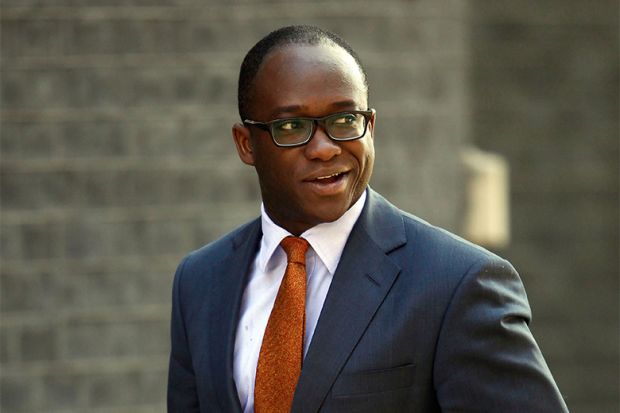Analysis of graduate earnings by the Institute for Fiscal Studies shows that there are a “clutch of underperforming degrees that are not delivering for students” in English higher education, universities minister Sam Gyimah has claimed.
The IFS analysis looked at previously published Longitudinal Education Outcomes data, which had shown how the subject that a graduate studied – and the university they attended – made a huge difference to earnings.
Much of this had been attributed to a student’s prior attainment and socioeconomic background. But the IFS study found that, while these factors had some impact on salary data, studying for a particular degree still had a big effect once they were controlled for.
Mitigating for student characteristics, Russell Group graduates can expect to earn the most after graduation, around 10 per cent more than if they had studied at an “average” institution, the IFS found.
Typically, Russell Group universities and pre-1992 institutions have higher-earning graduates than newer institutions, with specialist arts, music and dance institutions having the lowest-earning graduates, the analysis said.
There were also large variations in earnings by course. Taking into account a student’s background, the IFS estimated that studying medicine or economics would lead to earnings of more than 20 per cent above the average, five years after graduation. A creative arts graduate typically earned 15 per cent less than the average.
The IFS study noted that certain courses had different impacts on different students. Medicine, pharmacology and English have relatively higher returns for females than males, whereas computer science saw more benefit for men, it says. Medicine and education had higher returns for students from lower socioeconomic backgrounds, while economics and history had better returns for students from higher socioeconomic backgrounds, according to the study.
The study found that graduate earnings for women studying mathematics at Imperial College London or economics at the London School of Economics were more than 100 per cent greater than average, while returns on studying creative arts at the Liverpool Institute for Performing Arts or English at Middlesex University were more than 40 per cent below average.
Speaking at the annual conference of the Higher Education Policy Institute, Mr Gyimah said that the study showed that universities should take better responsibility for what they offer, “so you are not putting on courses that are cheap to offer, that are threadbare or not as competitive as they could be”.
Mr Gyimah said that it was not about whether or not universities offered a creative arts degree, but it was about whether or not they offered a course that is competitive, he said, adding that universities should be striving to offer the best degrees rather than trying to get “bums on seats”.
Mr Gyimah said universities had be more transparent to the wider public and prospective students about what returns their subjects delivered, as he announced a funding call for the development of innovative digital tools to make outcomes data accessible to students.
In response, Alistair Jarvis, chief executive of Universities UK, warned that graduate earnings were heavily influenced by “regional differences and socioeconomic inequalities” and that many careers that made essential contributions to society did not result in above-average earnings.
Greg Walker, chief of the MillionPlus mission group, added that current graduate earnings “reflect past ‘milk round’ practices from some large employers that were, until quite recently, based on institutional prestige”.
“Nuance and proper context – supported by independent advice – will be essential if the transparency agenda is to be a success for students in England,” he said.
Register to continue
Why register?
- Registration is free and only takes a moment
- Once registered, you can read 3 articles a month
- Sign up for our newsletter
Subscribe
Or subscribe for unlimited access to:
- Unlimited access to news, views, insights & reviews
- Digital editions
- Digital access to THE’s university and college rankings analysis
Already registered or a current subscriber? Login








